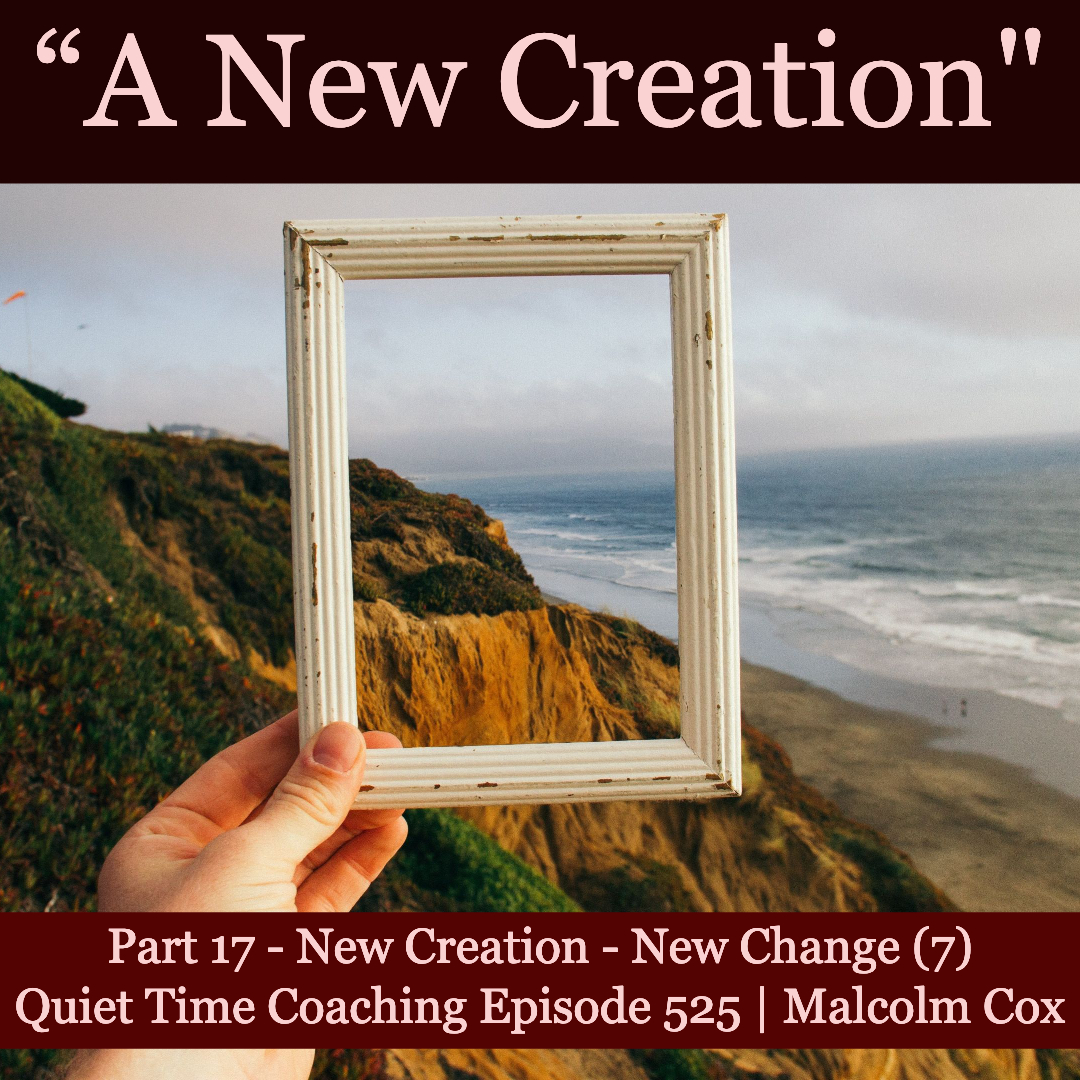
Introduction
A new creation! I’m Malcolm Cox. Welcome to this series on ‘A new creation’. Today, some concluding thoughts on how God changes us. Many of us grapple with: “I want to change, but can I?” The answer is a resounding yes. Not only can you change, but you should also expect it.
- Dissatisfaction is a sign of grace
Think about what is it that you want to change in your spiritual life. How do you feel about it? Are you frustrated you are not ‘already there’? Change takes time, often a long time, but the desire to change is a sign that God’s grace is already at work within you. This is a powerful reminder that you’re not alone in this journey.
- Follow the pain
One profound piece of advice is to “follow the pain.” No one changes until the pain of staying the same becomes greater than the pain of change. This pain, though uncomfortable, is actually a gift. It’s a catalyst, driving us toward transformation. Humility is the key here. Are you willing to let God do the work in His way, not yours? This openness to God’s plan is essential for genuine growth – even if it depends on pain!
- Make a start
So, where do you start? Matthew 6 provides some guidance with what someone called the “Disciplines on the Mount” – prayer, fasting, and almsgiving. These practices focus on our relationships with God, our neighbours, and ourselves. But remember, be creative. Fasting doesn’t have to be about food. It could be something as simple as skipping a snack. Aim to start simple. Trying to make it spectacular often means we’re trying to control the process. Think of it as training instead of trying. When you can’t still your mind, simply still your body. Don’t worry about “failure.” Spiritual growth isn’t about perfection. Don’t take yourself too seriously – have fun with it.
And here’s something crucial: the point of these disciplines is joy. Approach them with openness and curiosity. Ask yourself, “Can I…?” rather than telling yourself you must. This mindset shift can make a big difference.
4 . Do it together
Community is another significant aspect of spiritual growth. Involve others in your journey. Share your experiences, solicit feedback from trusted guides, friends, or companions. Could you gather monthly with friends to listen – to God, to each other, and to your own hearts? Listening together with generosity can be transformative.
Conclusion
Interestingly, the discipline you choose may not directly impact the area you want to change. Our job is to participate, and God will bring about the change. This is the principle of indirection.
So, as you embark on this journey of change, remember: you can grow spiritually. Expect it, embrace it, and let God lead the way.
Next time we will go on to look at how to follow Jesus as a new creation.
Your brother, Malcolm
Please add your comments on this week’s topic. We learn best when we learn in community.
Do you have a question about teaching the Bible? Is it theological, technical, or practical? Could you send me your questions or suggestions? Here’s the email: malcolm@malcolmcox.org.
If you’d like a copy of my free eBook on spiritual disciplines, “How God Grows His People”, sign up at my website: http://www.malcolmcox.org.
Please pass the link on, subscribe, and leave a review.
“Carpe Diem” Kevin MacLeod (incompetech.com)
Licensed under Creative Commons: By Attribution 4.0 License
http://creativecommons.org/licenses/by/4.0/

